Share
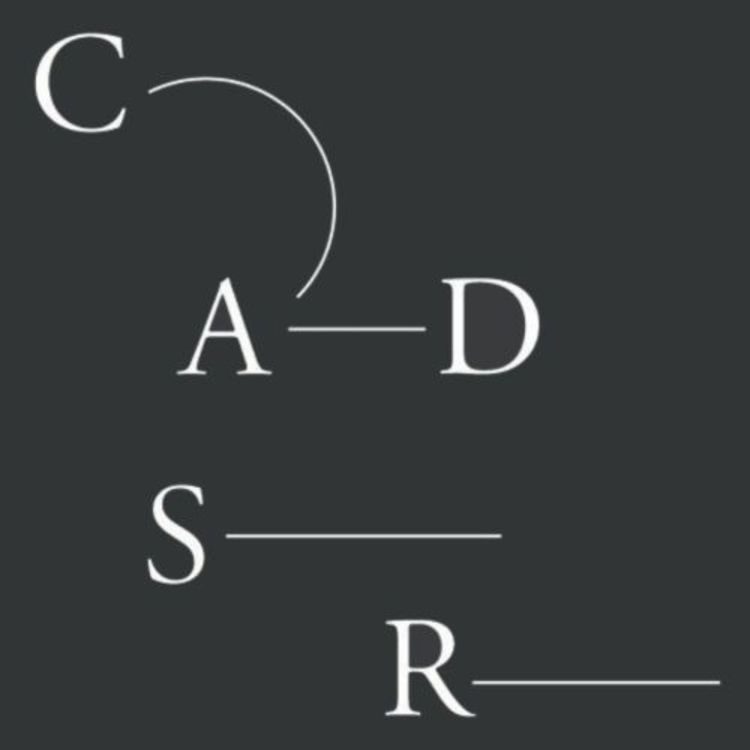
Conversations From The Center
Episode #3 – Transforming Materials
Hector Canonge discusses his studio home MODULO 715 in NYC, and the residency program he organized in the space. Faced with a fire that destroyed the building, he had to restart everything (once again). What is an audio performance? The first answer in our series comes from Tamara Al-Mashouk, who asks among other things: “Where are you from?” Next, we invited participants in our residency in Nairobi (Kenya) to discuss: how do you understand transformation in flux? How are materials (and their transformations) part of your art, activism, and research practice? Our group of conversants include artist Laura Porter (Paris/France), artist Wambui Collymore (Nairobi/Kenya), artist/organizer Dennis Kiberu, (Nairobi/Kenya) and photojournalist Adam Sings In The Timber (Providence/USA). We finish off with Dutch sound artist Zeno Van Den Broek’s interpretation of Conversations From The Center, through an audio composition of voices from the future. Portions of this program were recorded at the AfroQueer podcast studios in Nairobi, Kenya.
Hector Canonge (@hectorcanonge)
Hector Canonge is an interdisciplinary artist, curator, and cultural producer based in New York City. His work incorporates various forms of artistic expression: Performance Art, Dance, Multimedia Production, Installation, and Social Practice to explore and treat issues related to constructions of identity, gender roles, and the politics of migration.
Tamara Al-Mashouk (@tmraalm)
Tamara Al-Mashouk was born in Saudi Arabia in 1988. She graduated from Wellesley College with a major in architecture (2010) and holds a Master of Fine Arts degree from the School of the Museum of Fine Art at Tufts University (2016). Through video, performance, and architectural installation, Al-Mashouk examines the movement of people across societal and national borders with specific focus on the intersectional body and conversely this body’s relationship to institutional systems. She has founded an all-female fine art gallery at a music and arts festival in upstate New York. She produces single and multi-channel video works for the gallery and public sphere- a five-channel video installation for a solo show in Boston, a two-channel video installation in Beijing, and a three-hour multi-channel
Adam Sings In The Timber (@signsinthetimber)
Adam Sings In The Timber is an enrolled member of the Crow Nation in Montana, USA. Adam was born in Montana and grew up in the Midwest of the USA. He studied photojournalism at the University of Montana, Missoula. Currently based in Providence, RI, his work captures the beauty and complexities of Native American culture without shying away from the realities of poverty, addiction and abuse. His photo making process ethically portrays Indigenous communities through art and documentation. Sings In The Timber’s work, combining documentary photography and portraiture, will be featured in an upcoming exhibition at the Field Museum in Chicago. Previous exhibitions include First Voice Art Gallery at the American Indian Center, Chicago; Paramount Theatre Gallery, Seattle; Montgomery Ward Gallery, University of Illinois-Chicago; Harold Washington Library, Chicago; Gallery OTR, Cincinnati, Ohio; and King Street Station, Seattle, Washington. His photojournalism has been published in The Guardian, Indian Country Today, Indian Peoples Magazine, USA Today and the New York Times, among others. He has lectured widely on the importance of Indigenous people documenting their own culture at institutions including Bowling Green State University, Northwestern University, Brown University, and the University of Colorado Boulder.
Laura Porter (@_laura.porter_)
Laura Porter is an American artist who lives in Paris, France. She has a practice-based PhD in Fine Arts from École nationale supérieure des Beaux-Arts / SACRePSL. Through installation, sculpture, and video, her work considers modes of value production. With particular attention to the genesis of objects and tools as well as the role of the body in disposable economies, her works appear as small technological/nutritional economies or systems in the pro- cess of becoming animated. Laura Porter’s work has been presented at Centre Pompidou (Paris), Centre Régional d’Art Contemporain Languedoc-Roussillon (Sète), Fundació Joan Miró (Barcelona), FRAC Champagne-Ardenne (Reims), Woluwe Park (Brussels), In extenso (Clermont-Ferrand), and Bandjoun Station (Cameroon).
Wambui Collymore (@wambuikamiru)
Born in 1982, in Kenya, Wambui Wamae Kamiru Collymore has been developing artwork around the theme of colonialism, identity, and independence in Africa. She is the Founder of The Art Space – an online contemporary gallery with alternative show spaces, based in Nairobi. Through her own work in contemporary art – mainly simulated experiences, Wambui tackles history, politics and social issues. Originally a painter, Wambui now creates installations with various mediums. She is currently intrigued by pattern, its repetition, and memory. Wambui Kamiru holds an MSc.in African Studies with a focus on Kenyan History from the University of Oxford. Her dissertation focused on the attempt to create collective memory around Kenyaʼs Mau Mau War and the family of Field Marshall Dedan Kimathi. With this background, Wambui tells stories about the passage of time, through her artwork. Her most recent exhibition, Wakariru (#Wakariru) was an exhibition about the destruction of language for everyday things and the accompanying loss of orally documented knowledge. It looked at memory and the forgotten history of the role of women in the Mau Mau war. It was shown at One Off Galleryʼs Space at Rosslyn Riviera. Akili Ni Nywele (#AkiliNiNywele) was created as part of Sensing Nairobi, a group exhibition that sought to describe Nairobi – the capital city. This exhibition focused on modern perceptions of womenʼs beauty and femininity in relation to hair and how “urbanized” women are increasingly wearing fake hair to enhance their beauty and femininity. It asked where this perception came from and what it means to us, both male and female. It was shown at the British Institute East Africa (BIEA) and at the Kenya National Museum. To see more of her work visit: www.wambuikamiru.com
Dennis Kiberu (@denniskibbz)
Dennis Kiberu is a radio presenter, PR practitioner, music producer, disc jockey and photographer originating from and based in Nairobi, Kenya. He has studied Journalism and minored in Film at the Multimedia University of Kenya, with a focus on broadcast media and photography. In 2013 after finishing high school, he became a self-taught disc-jockey and went on to perform at events in Mombasa and Nairobi, where he later ventured to music production. In 2015, He was the Assistant PR Officer for the Ministry of Tourism. In the same year he ventured into commercial photography working with fashion designers, art studios, live concert performances and festivals. In 2016 he was a producer at Homeboyz Radio Kenya. Since 2016, he has been producing and presenting live a comical mid-morning Saturday show ʻSato Vybzʼ in Multimedia University Radio.
More episodes
View all episodes
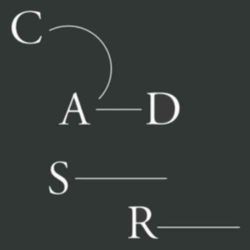
8. Episode #8 – Affecting Technologies
01:25:42||Season 1, Ep. 8We begin with a Case Study exchange with host Sylvain Souklaye and curator/artist Sabrina Huth, who sheds light on creating a physical exhibition “Stories of Absence” during the pandemic in Amsterdam. Then we proceed to a piece by performance artist Diana Schuemann (based in Haifa), who poses the question of movement during uncertain times. For our conversation portion, we welcome CAD+SRs very own Affecting Technologies research group featuring Katherine Ye, Gabriel Pereira, and Bruno Moreschi, a group of artists, researchers, technologists and activists, who work towards new countercultures of computing. Lastly, we end with a sound piece entitled “Água de Chocalho (Rattle Water)” introduced by sound curator KMRU, created by Brazilian sound artist and researcher, Yuri Bruscky. Gabriel Pereira Gabriel Pereira is a PhD fellow in Information Studies at Aarhus University (Denmark). He is interested in practices that bring together science and technology studies with software and artistic practice. His main research focus is around critical studies of data, algorithms, and digital infrastructures, especially for computer vision. In 2018-2019, with support from CAD+SR, he was a visiting Graduate Student at MIT's Global Media Technologies and Cultures Lab. Projects with Gabriel have been exhibited in the 33rd Sao Paulo Art Biennial, the Van Abbemuseum, IDFA DocLab, Itaú Cultural, and aarea.co. He is a 2019-2020 Researcher in Residence at CAD+SR. Bruno Moreschi Bruno Moreschi is a researcher and multidisciplinary artist. Postdoctoral fellow at the Faculty of Architecture and Urbanism at the University of São Paulo (FAUUSP), Ph.D. in Arts at the State University of Campinas (Unicamp), with a Capes scholarship, and exchange at the University of Arts of Helsinki (Kuva Art Academy), Finland, via CIMO Fellowship. His academic and artistic investigations are related to the deconstruction of systems and the decoding of their procedures and social practices – including here (but not only) experiences in the visual arts system and its spaces of legitimation. He currently conducts experiments in the field of Artificial Intelligence, in reverse engineering processes to carry out expanded practices of institutional critique and studies on human layers present in the training and maintenance of contemporary digital infrastructures. Projects recognized by scholarships, exhibitions and institutions such as Van Abbemuseum, 33rd Bienal de São Paulo, Rumos Award, Funarte, Capes, and Fapesp. Apart from being a senior research fellow at the Center, he is currently a researcher on the Histories of AI: Genealogy of Power (Department of History and Philosophy of Science, Cambridge University), and one of the coordinators of GAIA / C4AI / Inova USP, a group of researchers from different fields in the construction of democratic, artistic and experimental methods in the use of programming, machine learning, and Artificial Intelligences – always considering the specifics of the Global South context. Katherine YeKatherine Ye works on making computing more expressive and equitable. Ye is a Microsoft Research PhD Fellow at Carnegie Mellon University and co-organizes coveillance, a US-based collective working to reshape the balance of power between marginalized communities and computing.hypotext.cotwitter: @hypotext Sabrina Huth Sabrina currently lives and works as free-lance dance artist in Berlin. Next to her diploma studies in psychology (University of Vienna), she completed a teachers training for holistic dance and movement pedagogy (Institute INGATA). Since 2017, she increasingly explores interdisciplinary formats of artistic research within the frame of the Master`s program ‘Artistic Research’ at the University of Amsterdam and the Amsterdam University of the Arts.https://imaginedchoreographies.com Diana SchuemannDiana Schuemann, (German-Yugoslavian) holds a MA degree in Holocaust Studies (University Haifa). She has built her dance roots in the Berliner (Hip Hop) Dance scene, is a performer as well as art historian with a research focus on dance pieces dealing with the Holocaust and Genocide. Whilst originally coming from the Hip Hop dance scene, Diana developed throughout the past five years an approach of movement research which combines Hip Hop dance, modern and contemporary dance as well as improvisation techniques. She studied for the duration of a year dance at the Lola Rogge School in Hamburg. Joining later on the Israeli dance scene enabled her to explore a for her deeper understanding through Ohad Naharin´s Gaga technique. From 2017-2018 Diana carried out research with Israeli high school students, discussing and exploring the use of dance for teaching about the Holocaust. https://www.instagram.com/_d_i________/ https://www.facebook.com/The-Parrots-Dress-1754607864770242/ Yuri BrusckyYuri Bruscky (Brazil, 1985). Sound artist and researcher, doctoral student in Sociology at the Federal University of Pernambuco/UFPE, Brazil. He develops artistic investigations exploring intersections between noise, language and everyday practices. Since 2010 he has maintained the label Estranhas Ocupações, through which he releases records and publications and organizes concerts. He is co-creator of the sound art festival Rumor and the seminar and artistic residence program (Entre) Lugares Sonoros, as well as co-author of the book História da Poesia Visual Brasileira (Cepe, 2018).https://www.instagram.com/yuri.bruscky/?hl=en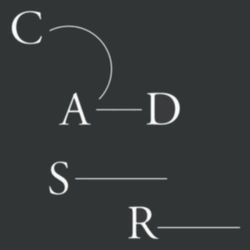
7. Episode #7 – Mix!
58:10||Season 1, Ep. 7A Case Study conversation with CAD+SR 2019-2020 Senior Research Fellow, the artist Syowia Kyambi, starts our podcast. Next, artist and sound art curator KMRU introduces a soundwork by artist Acaptcha. This is followed by a conversation with Mx. Media Productions, a group including Lara Americo, Dee Borrego, Ea Domke-Chase, and Esther Mirembe, that activates multilayered storytelling to create open conversations on transgender and non-binary life and culture. The episode ends with a recording by CAD+SR Research Fellow McKersin and Lakai Dance Theater. It is an excerpt from the musical “The Block,” which reflects on many questions, such as toxic masculinity, mental health, and violence.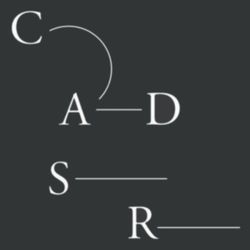
6. Episode #6 – Resistance
01:04:31||Season 1, Ep. 6We start with our Case Study, a conversation with the Field Recording show, a programme exploring the soundscape, recording, listening, and composing hosted by Kate Carr and Luca Nasciuti. This will be followed by an audio performance piece by Intan Rafiza, entitled ROOT BECOME RITUAL. Our conversation on Resistance is with the esteemed guests Dr. Lisa Brock and Otis Cunningham, long-time activists and historians who have focused on Black resistance in the Americas (and in the world in general). The episode closes with a sound artwork by ogniki, whose focus on the cathartic elements of club culture has us hooked! This podcast series is produced by Sylvain Souklaye, with Dalida María Benfield and Chris Bratton. Lisa Brock (aka Doc Brock) is the Academic Director of the Arcus Center of Social Justice Leadership at Kalamazoo College, where she has worked to infuse social justice into Liberal Arts Education. Her writings on Africa and the African Diaspora have appeared in dozens of academic journals, political outlets, book chapters and the groundbreaking book, Between Race and Empire: African- Americans and Cubans Before the Cuban Revolution. Lisa is a member of the Board Trustees of the Davis Putter Scholarship Fund and senior editor of Praxis Center, an online blog and resource center for scholars, activists and artists. A rebel all her life, Lisa fought for girls’ rights and Black rights while growing up in her native Cincinnati, Ohio area and against police violence and judicial misconduct in Washington D.C. while an undergraduate. She became a leader in the anti-apartheid movement while in graduate school in Chicago and lived in Mozambique as a Fulbright Scholar where she critically merged her academic interest with southern African liberation struggles. She worked to found the Chicago Anti-Apartheid Movement Collection at Columbia College Chicago (CCC) and to endow an international travel scholarship for students involved in African-American Studies. She has also led study abroad programs for faculty, students and activist to South Africa and Cuba. As a historian and justice leader, Lisa is an internationalist who views history as a way to enter contemporary discussions about race, class, gender, and global inequalities. Lisa attended Oberlin College and earned her B.A. from Howard University and her M.A. and Ph.D. in African History from Northwestern University. Otis Cunningham is a life-long Chicagoan, health worker, and activist. During the 1960s and 70s, he led national movements in solidarity with liberation movements in Africa, Cuba, Nicaragua, and other areas of the world. He was a member of the African American Solidarity Committee and co-editor of the magazine African Agenda from 1971–1980. He is currently leading educational groups to Cuba and working on a book with his partner on Charleston and Havana during the era of enslavement. Both Lisa and Otis are also Faculty Fellows of CAD+SR, and Lisa is a founding member of our Board of Directors. Ogniki, two intergalactic musical nomads who found each other in Uganda, gravitated towards their polar opposite sounds to interact with the energy of the collective and share with everyone on the dancefloor the moment of togetherness. Morgiana Hz and Slikback combine unique elements from different genres to conjure immersive experiences with ingredients as follows: knowledge of Slavic ancestors, elements of African heritage, tribal rhythms, consciousness of body, free-form noisey and bassy structures, vibrational alchemy, (extended) vocal techniques and deconstructed nature-based aesthetic. Ogniki focus on the catharsis element of club culture, leading listeners in a purge of emotions. Their aim is to bring a feeling of ancestral spells and atmosphere of rituals, drawing upon purifying power of wildness. The Field Recording Show is a programme exploring the soundscape, recording, listening and composing hosted by Kate Carr and Luca Nasciuti. This first episode features interviews with composer Simon Scott and artist and academic Cathy Lane. The pair survey the field recording scene today and discuss their practices. Resonance Extra - 24/7 sound art, radio art and global music. Listen on DAB+ in Brighton, Bristol, Cambridge, London and Norwich or via http://extra.resonance.fmIntan Rafiza is a curator and artist. Practicing performance art for the past 15 years , her art pieces reflect and respond to the social criticism within contemporary society. Taking the bold step of creating performance art as expression and medium for having a dialogue with the public.Her performance pieces were exhibited most notably at Gluck50 Milan , Italy 2018, Asiatopia Conference SE Asia, Bangkok, Thailand 2016 & 5th Beyond Pressure Festival, Myanmar 2012 . Currently she is working on her performance series SEMUKA -Face to face.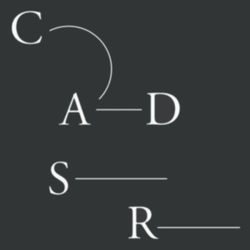
5. Episode #5 – Utopia (No Place)
01:05:14||Season 1, Ep. 5We're back, starting with a short conversation with Tel Aviv based programmer and designer Ariel Malka, who develops experimental interactive projects. Next we hear TJB's audio performance, expressing the artist’s non-binary self as 40 droplets of water impacting a heated sheet of steel. Following that, we have our monthly conversation, which is about “Utopia,” the elusive and idyllic no-place of a happier and more just society. The idea of utopia has had many consequences throughout history, and much has been built and unbuilt around it. Participants in this conversation include a diverse group of researchers, artists and designers composed by Susana Delahante Matienzo (Cuban, based in Amsterdam), Giuliana Visco (based in Rome), and Ou Ning (based in China). Finally, our host Sylvain Souklaye chats with KMRU to introduce the work of Sarah Badr (FRKTL), whose new, untitled sound art piece closes the episode. This podcast series is produced by Sylvain Souklaye, with Dalida María Benfield and Chris Bratton. Ariel Malkahttp://ariel.chronotext.org/ TJB TJB, is a non-binary artist-philosopher whose work focuses upon the conception of the body, Being and the idea of a multiplicity of Self/s in performance. This work can be located within the framework of performance art and philosophical/phenomenological investigations that look to de/construct and challenge perception, alongside the assumed liminal barriers of body-based art. Xe is known for creating artworks that capture an altered space, environment, or period of time that regardless of scale, will often make intense, sometimes visceral, beautiful pieces that place the body in extremis. Living and working in the UK, TJB has been exhibiting work since 2001 and internationally since 2009 particularly through Europe and East coast USA. TJB is also the artistic director of Tempting Failure, which produces the London Biennial of International Performance Art, and curates a wide range of transgressive performance art practices. You can find out more about TJB at tjb.org.uk and they’d like to extend an invitation to all listeners to engage with their unique ongoing project In/Visible Exchange where TJB expands conversations away from social media via unique electronic zines based entirely on the questions sent to them.https://www.temptingfailure.com/ FRKTL is the solo experimental project of British-Egyptian audiovisual artist Sarah Badr. A classically trained multi-instrumentalist utilizing live sampling and improvisation, vocal manipulation, field recordings, and generative rhythms, she composes immersive, hypnotic, and haunting explorations of sound. For the past decade, Badr’sinterdisciplinary art practice has expounded on world creation in four dimensions, augmenting photography and footage with computer-generated imagery and sound design. Her mixes and DJ sets seamlessly blend disparate genres, challenging preconceptions of spaces real and virtual. Badr studied Creative Computing (BSc) at Goldsmiths, University of London; and International Relations (BSc)and Law (LLB)at the London School of Economics. Raised between London, Cairo, New York, and Manama, Badr now lives and works between Riga, Cairo, Berlin, and London.FRKTL releases include Prose Edda (EP,2017); Qualia (LP, 2016); Descent / Fjäder(double single, 2013); Atom (LP, 2011);and B-Sides (mini-album, 2011). Her sixth release and third full-length solo album, Excision After Love Collapses, is due out later in 2020FRKTL.COM Ou Ning Ou Ning is a multi-disciplinary practitioner from China. He is an artist and filmmaker, who produced the documentary projects San Yuan Li (2003) and Meishi Street (2006). As a curator, Ou Ning initiated the biennial art and design exhibition “Get It Louder” (2005, 2007, 2010), and was the chief curator of the 2009 Shenzhen & Hong Kong Bi-city Biennale of Urbanism and Architecture in 2009. From 2011–2014, Ou Ning wrote and edited a literary bimonthly journal Chutzpah! His activism has involved living in a small village in Anhui Province and founding the Bishan Commune (2011–2016) and the School of Tillers (2015–2016). As a visiting professor, he has taught at the GSAPP, Graduate School of Architecture, Planning, and Preservation of Columbia University (2016–2017). He is a frequent contributor to various magazines and books and has lectured around the world. Giuliana ViscoGiuliana Visco received a degree in art history in 2002, obtained a DEA in HyperMedia, and a PhD in sociology at Università della Calabria. Visco’s heterogeneous academic career reflects the belief that multidisciplinary tools are pivotal for the understanding of today’s society, trends, and dynamics. Her professional life has had a continuous red thread: social and political activism focused in defense of young people’s, migrants’ and women’s rights. Visco has worked as a tutor on an AMIF project for unaccompanied young migrants. She now works with the not-for-profit, search and rescue ship “Mediterranea” located on the Mediterranean Central Sea. “Mediterranea” is an effort that assists people trying to enter Europe from Libya. Susana Pilar Delahante MatienzoSusana Pilar Delahante Matienzo was born in Cuba in 1984. From 1999–2008, she studied at the Fine Arts Academy “San Alejandro” and the Instituto Superior of Arts (ISA) in Havana, Cuba. She did postgraduate studies in New Media at Karlsruhe University of Arts and Design (HfG), Germany (2011-2013). Matienzo has participated in residency programs in Canada, Holland, Reunion Island, United States, Italy, Sweden, Austria, etc. She has had solo shows in Havana, Cuba, Venice, Italy, Skövde, Sweden, Fort de France, Martinique and Enschede, Netherlands. Susana took part in the 13th Havana Biennale; 56th Venice Biennale; 1st Biennale of Contemporary Art, Martinique; III Biennale at Reunion Island; and the 7th Gwangju Biennale, South Korea.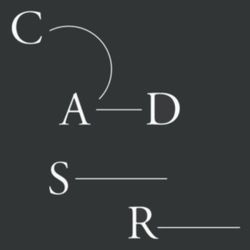
4. Episode #4 - Free/Space
45:01||Season 1, Ep. 4In our newest episode, we hear a sonic investigation of free space: real, virtual, and imagined. We hear from Louise O’Kelly and Marlies Augustijn, organizers of Block Universe, a performance art festival based in London. Challenged by the current pandemic, they discuss: How? When? Where? An audio-based performance by Anissa Tamene follows. Our conversation then hones in on “Free/Space,” rethinking the spaces in which we live, work, occupy, and imagine. What could a truly free space look like? Participants in this conversation include a diverse group of researchers, artists and designers composed by Sibonelo Gumede (South Africa), Sonia Barrett (UK/Germany), Usha Seejarim (South Africa), and Syowia Kyambi (Kenya). Finally, ending our episode is a sonic experience by artist Aho Ssan, curated by Joseph Kamaru (KMRU). The series is produced by Sylvain Souklaye, with Dalida María Benfield and Chris Bratton. The conversation on “Free/Space” was recorded at the AfroQueer Podcast studios, Nairobi, with engineer Tevin Sudi.
2. Episode #2 - Radical Listening
31:19||Season 1, Ep. 2KMRU, a sound artist and field recordist from Nairobi (Kenya), introduces their relation to audio, sonic and vibration. KMRU speaks on ways of relating to space through sound, as sound both creates a memory of the physical presence, at the same time as it creates a map of a new land. Afterwards, we discuss Radical Listening with our guests, exploring the importance of sound in relation to architecture, writing, location, education and activism. What do we hear when we stop talking? What do we hear from others, not only people but the populous world around us? What sounds emerge, what silences, what understandings? The conversation group is composed of sound artist KMRU (Kenya), researcher Pelin Tan (Turkey), writer Michelle Angwenyi (Nairobi/Kenya), and artist/researcher and Projects Director at CAD+SR Mary Ellen Strom (US). Portions of this program were recorded at the AfroQueer podcast studios in Nairobi, Kenya.Kamaru Joseph Kamaru (KMRU), is notable for making intelligent atmospheric and emotionally evocative electronic music. KMRU works to inject a dose of experimentation and space in his music. Giving a personal touch using everything from gritty indigenous sounds to field recordings or intricate sonic landscapes. Pelin Tan Pelin Tan, is a researcher on methodology and field of critical spatial practices, alternative pedagogies, and conflict territories from Turkey and the 6th recipient of the Keith Haring Art&Activism. Tan, co-directed films about the future of art&society with artist Anton Vidokle.Michelle K. Angwenyi Michelle K. Angwenyi is a writer from Nairobi, Kenya. She was shortlisted for the 2018 Brunel Africa International Poetry Prize, and for the 2017 Short Story Day Africa Prize. Michelle has a chapbook, Gray Latitudes, forthcoming later this year from the African Poetry Book Fund and Akashic Books.Mary Ellen StromMary Ellen Strom is an artist, curator and educator. Her place-based, interdisciplinary artworks are produced with communities including ranchers, scientists, Indigenous Scholars, urban planners and politicians. Projects focus on environmental and social justice are exhibited in internationally. Awards include ArtPlace America, International Fulbright Scholar, National Endowment for the Arts, MAP Fund, Artadia Fund, VIA Fund, Art Matters, Creative Capital. Strom is the Project Director for CAD+SR.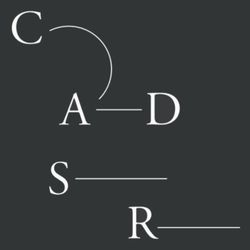
1. Episode #1 – Dis/Order
32:39||Season 1, Ep. 1Usha Seejarim, artist from South Africa, introduces a key moment of transformation in her life, when she was asked to design a permanent public memorial for Nelson Mandela in anticipation of his death. Afterwards, we converse with sociologist of the arts Margarita Kuleva (Russia), artist/researcher Bruno Moreschi (Brazil) and technology researcher/activist Jackline Kemigisa (Uganda) about how they see their work in relation to the theme of Dis/Order. Portions of this program were recorded at the AfroQueer podcast studios in Nairobi, Kenya.Bruno MoreschiResearcher and multidisciplinary artist. Postdoctoral fellow at the Faculty of Architecture and Urbanism at the University of São Paulo (FAUUSP), PhD in Arts at the State University of Campinas (Unicamp), with a Capes scholarship, and exchange at the University of Arts of Helsinki (Kuva Art Academy), Finland, via CIMO Fellowship. His academic and artistic investigations are related to the deconstruction of systems and the decoding of their procedures and social practices – including here (but not only) experiences in the visual arts system and its spaces of legitimation. He currently conducts experiments in the field of Artificial Intelligence, in reverse engineering processes to carry out expanded practices of institutional critique and studies on human layers present in the training and maintenance of contemporary digital infrastructures. Projects recognized by scholarships, exhibitions and institutions such as Van Abbemuseum, 33rd Bienal de São Paulo, Rumos Award, Funarte, Capes and Fapesp. He is currently a researcher on the Histories of AI: Genealogy of Power (Department of History and Philosophy of Science, Cambridge University), senior researcher at the Center for Arts, Design and Social Research (CAD+SR) and one of the coordinators of GAIA / C4AI / Inova USP, a group of researchers from different fields in the construction of democratic, artistic and experimental methods in the use of programming, machine learning and Artificial Intelligences – always considering the specifics of the Global South context.Jackline KemigisaJackline Kemigisa is a feminist Journalist and Podcaster interested in the intersection between technology and the media. Currently, she is pursuing a Masterʼs degree in Digital Journalism and technologies. Before this, Jackline ran a hybrid publication called Parliament Watch, a platform that monitors and updates on Parliament of Uganda, East African Legislative Assembly through leveraging new technology as its primary means of communication as an editor and researcher on Parliamentary democracy in Uganda. The Africa Innovation summit has featured her work among the top 50 technology solutions under the media category, and she is currently sitting on the Africa Innovate board, representing Eastern Africa. As a journalist, her work has been published by the Womenʼs Media Centre, Independent UK, and several Ugandan publications. She also co- hosted a women biased history podcast called Wulira. As a blogger, she contributes to a women publication focusing on telling stories of Ugandan women called women for women in Uganda. Her areas of interest include: Feminisms, Media, decolonization, democracy, and governance